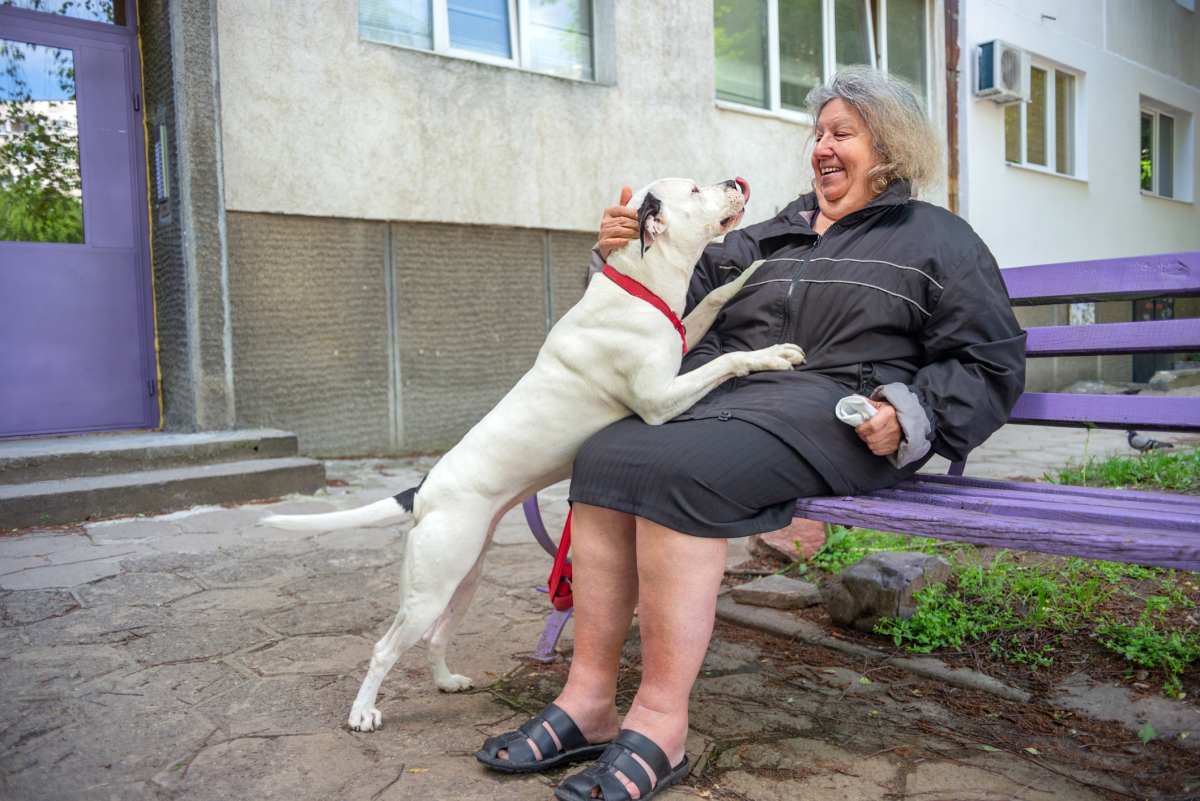Elderly woman never liked her neighbor’s ‘aggressive’ Pit Bull — until he showed up at her door when no one else did and refused to leave

The biggest shift in perspective often comes not through arguments or debates but through a single moment of truth. In one quiet apartment building in Sweden, a Pit Bull turned a long-held fear into lasting respect. An elderly woman, long wary of the Pit Bull’s supposed "aggression," was won over when he remained steadfast at her apartment door.

As reported by Bored Panda, in 2019, Arjanit Mehana was returning home with his Pit Bull, Simba. The then four-year-old dog had always been friendly, but not everyone saw him that way. One elderly neighbor, in particular, kept her distance. She lived a floor below and, like many others, believed the worst about Pit Bulls. That day, before Arjanit could even reach his door, Simba started barking sharply and ran straight to the neighbor’s apartment. Arjanit explained that Simba suddenly became alert and refused to move away from the neighbor’s door. Then, from inside, they heard a faint call for help. The neighbor had fallen and broken her hip. Without Simba, no one would have known she was in trouble.

Arjanit quickly called an ambulance, and the woman was taken to the hospital. Her attitude toward Simba changed after that moment. What had once been fear turned into trust. “People from different parts of the world have written and shared positive feedback,” Arjanit told the outlet. He had shared the story not expecting it to go viral, but simply to show another side of Pit Bulls. He added that his neighbor recovered after surgery and that her view of the dog had completely changed. For him, Simba was just being himself. “I have had Simba since he was 8 weeks old. [He] is a happy little guy. He loves to eat Dentastix and, of course, what’s on my plate. In the summer, swimming is one of the biggest favorites. Like running in the woods and playing with his dog buddies.”

The Pit Bull’s owner believed strongly that a dog’s behavior reflects its upbringing. “It is not the dog breed that is the problem, but usually the one holding the leash. Give Pit Bulls a fair chance,” he said. His point was echoed by research from the University of Cordoba, Spain. The study found that a dog’s aggressiveness is influenced more by external factors linked to owners than by the breed itself. Owners who lacked basic obedience training experience, spoiled their dogs, or left them unsupervised were more likely to have aggressive pets. In contrast, well-trained dogs of any breed could be calm and social.
The research, led by Joaquín Pérez-Guisado and published in the Journal of Animal and Veterinary Advances, analyzed 711 dogs of various breeds. It revealed that although certain breeds and ages may have slight tendencies, they were not decisive factors. The most influential elements were related to the owner’s behavior; how they trained, cared for, and spent time with their pets. Almost 40% of dog attacks linked to dominance came from households where dogs received little or no proper training. Ignoring these modifiable factors, Pérez-Guisado noted, is what often creates aggression in the first place.